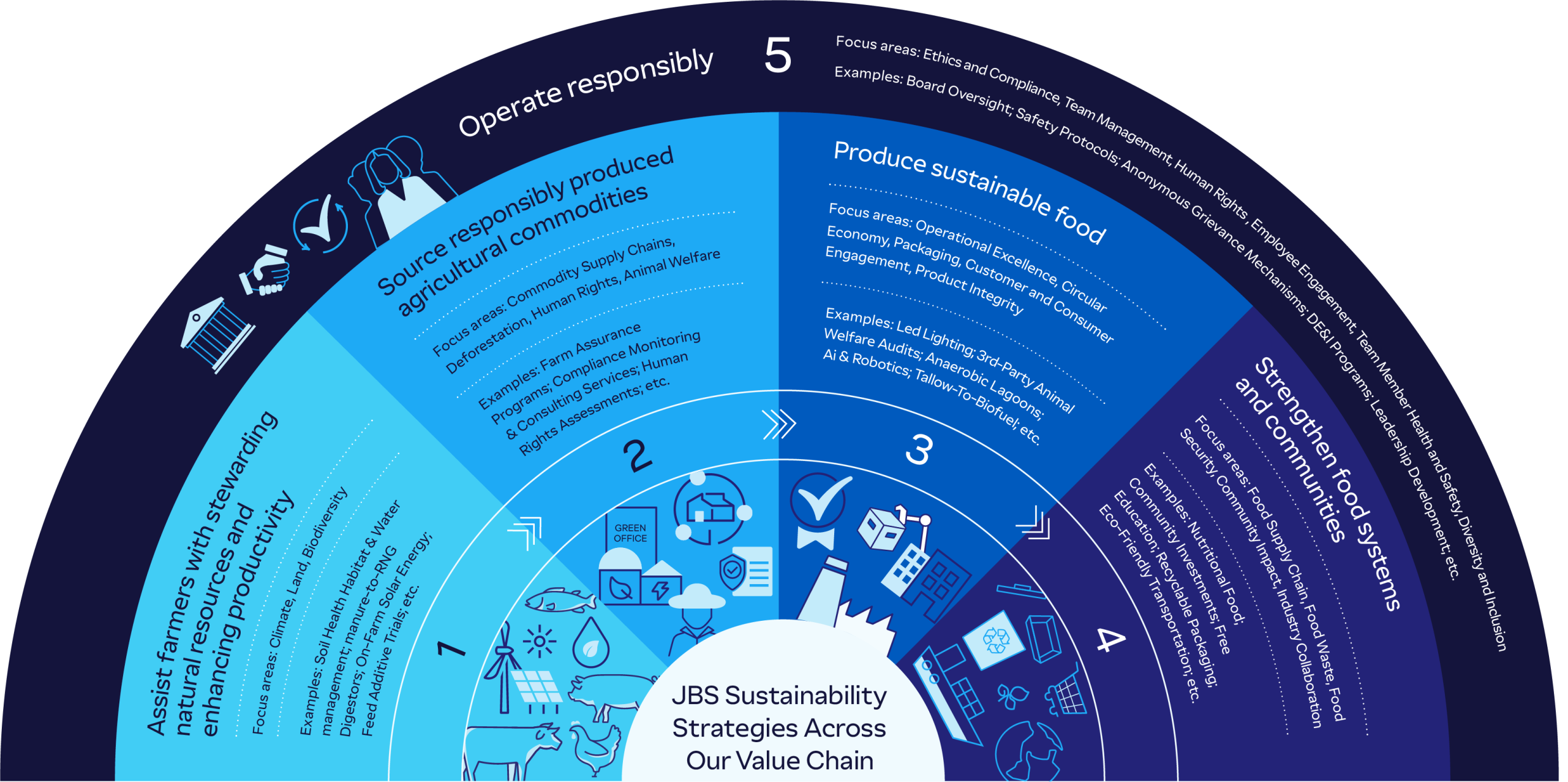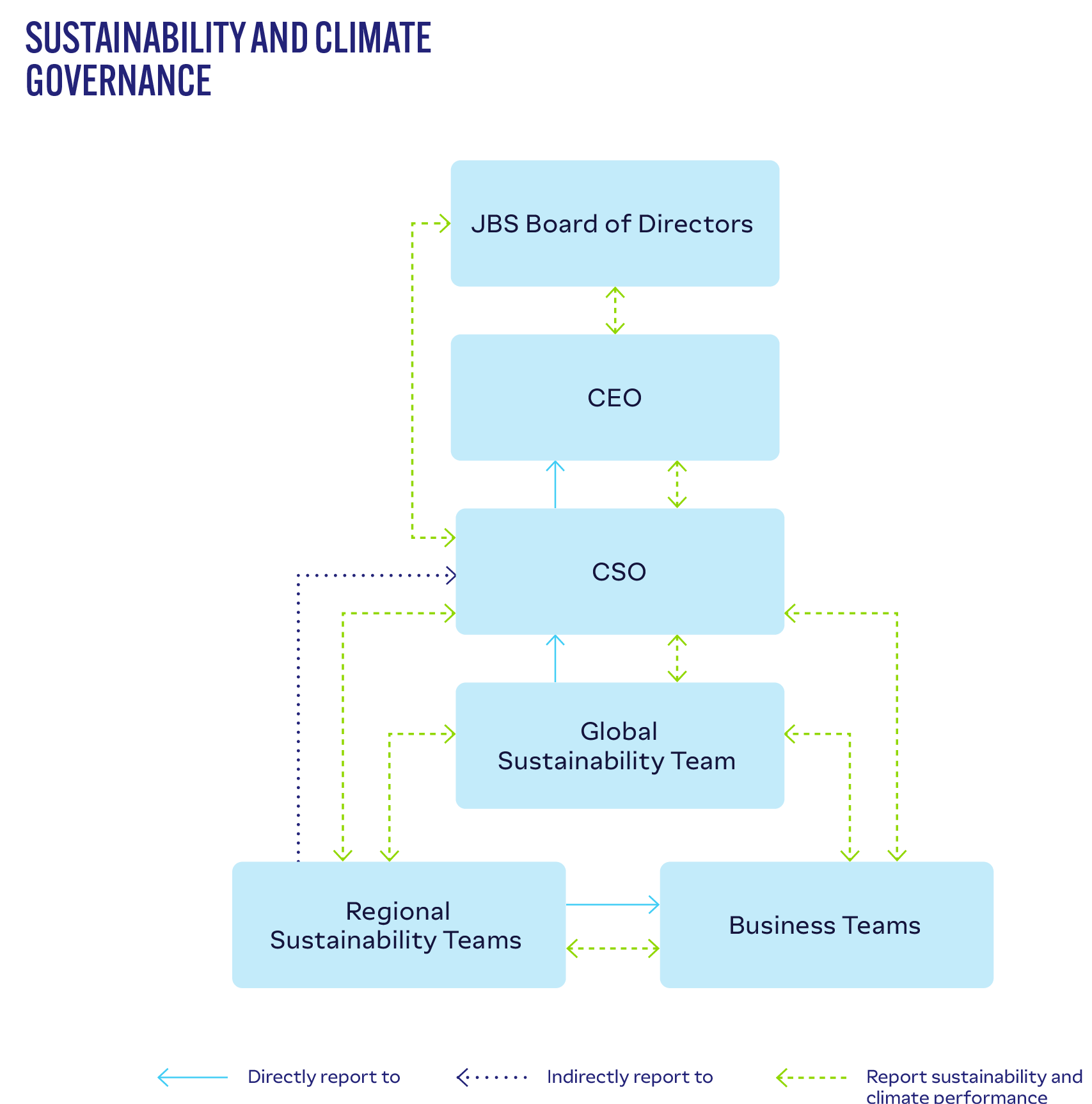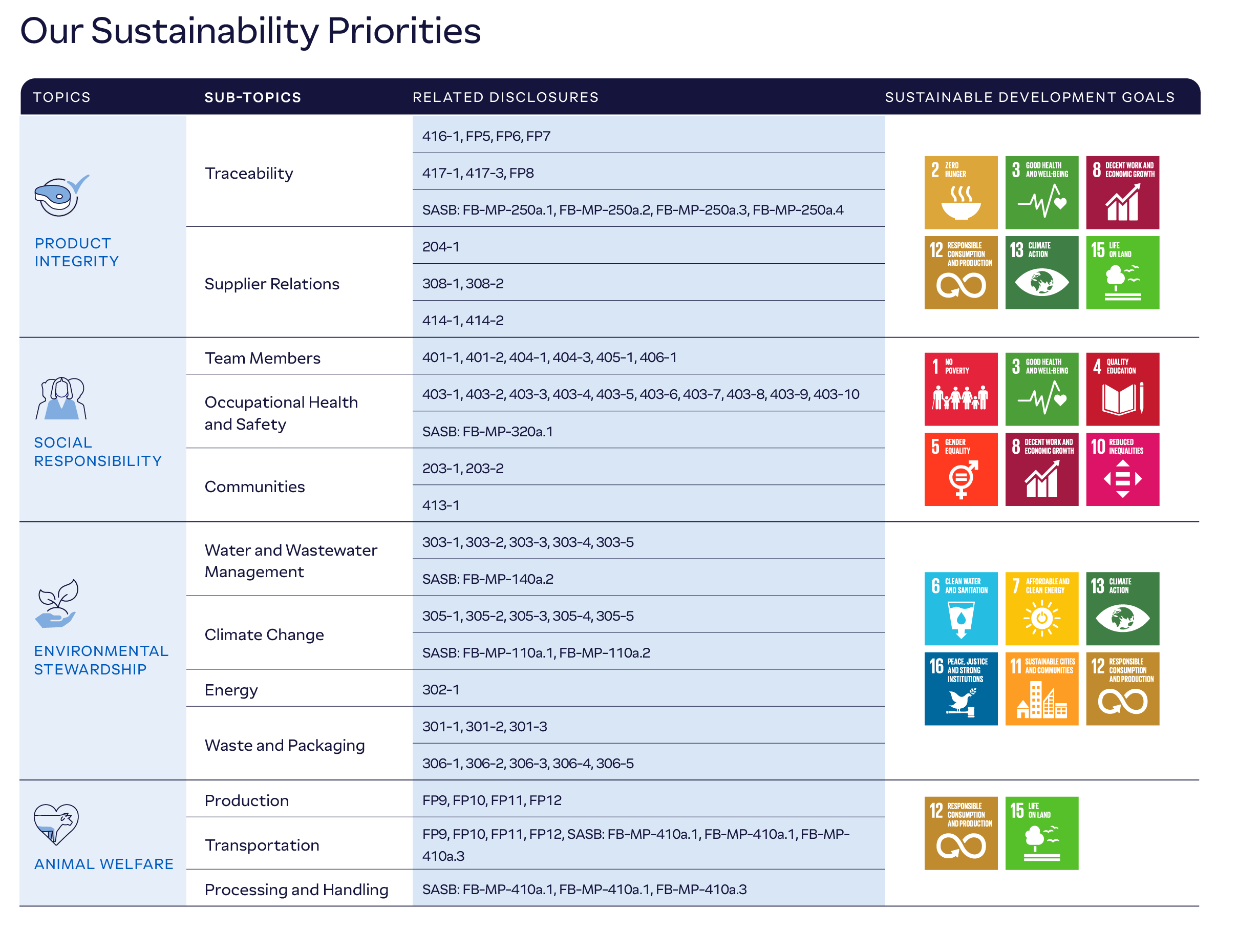Our Sustainability Strategy
(GRI 2-22)
We have developed a Global Sustainability Strategy that is rooted in promoting responsible practices across the greater agricultural food system. This strategy mirrors our value chain connections, addresses our material sustainability topics, and serves as the overarching framework from which all our sustainability programs and initiatives are developed.

We aspire to support farmers in their vocation to be stewards of the land, adopting practices that enhance natural resources and boost productivity. This will increase our ability to source responsibly produced agricultural commodities from suppliers who share our dedication to environmental and social responsibility.
Within our own operations, we remain focused on producing sustainable food, minimizing our footprint through improved efficiency and innovation while meeting the growing demand for products in which consumers can have confidence. We also aim to leverage our role as a large global food company to strengthen food systems and communities by investing in initiatives that combat food waste, improve food security, and support the well-being of the communities we call home.
Underpinning all of this is our dedication to responsible operations, upholding high ethical standards, prioritizing team member health and safety, and fostering a diverse and inclusive workplace. This interconnected approach positions sustainability as a guiding principle woven into the fabric of our business.
Responsibilities for addressing JBS’s economic, environmental, and social impacts were managed through our Executive Board and Committees. The Board was also responsible for setting the overall strategic direction of the business – prioritizing team member and supplier safety, social development, and environmental responsibility.
This team includes both global and regional leaders. Regional Heads of Sustainability are responsible for advancing sustainable practices within their operations and value chains, translating the company’s global sustainability strategy into actionable initiatives. They report directly to their business unit leadership and indirectly to the CSO. Additionally, the corporate team— reporting directly to the CSO— centralizes the monitoring, collection, accounting, and reporting of sustainability data, as well as assesses emerging trends and regulations. This team plays a critical role in interpreting, recommending, and integrating industry best practices, monitoring compliance with evolving sustainability standards, and promoting continuous improvements in sustainability performance across all business units.
This structure supports a cohesive framework for sustainability across JBS operations, while enabling agility and ownership at the local level. At the executive level, it also supported the work of the Socio-Environmental Responsibility Committee, which advised the Board on sustainability risks and opportunities.
At the subsidiary level, the Pilgrim’s Sustainability Committee supports the Pilgrim’s Board of Directors in overseeing ESG policies, strategies, and programs, including those related to climate change, energy conservation, human rights, diversity and inclusion, and employee health, safety, and well-being. This committee encourages Pilgrim’s executive officers and senior managers to design, fund, and implement initiatives aligned with the company’s sustainability objectives.

JBS conducts ongoing materiality analyses to understand stakeholder priorities in support of our global sustainability strategy and goals and in alignment with the UN SDGs. The most critical topics have been categorized into four overarching themes: Product Integrity, Social Responsibility, Environmental Stewardship, and Animal Welfare.
In late 2024, JBS initiated a double materiality assessment (DMA) to identify and assess sustainability-related impacts, risks, and opportunities across its value chain. This assessment was conducted in alignment with the European Sustainability Reporting Standards (ESRS) and broader evolving sustainability disclosure expectations. By considering both financial materiality and the company’s wider environmental and social impacts, the DMA will inform the continuous enhancement of JBS’s sustainability strategy and support compliance with emerging global and regional reporting requirements, including the EU CSRD.

Stakeholder Engagement
(GRI 2-28; 2-29)Meaningful engagement and collaboration with our stakeholders are fundamental to both our organizational and sustainability strategies. Our sustainability team maintains a continuous dialogue with stakeholders to understand their needs, proactively address
concerns, and generate positive impact beyond our operations. This engagement informs the development of goals, policies, and procedures at the business unit level, strengthening alignment with our global sustainability strategy and compliance with local standards.
We provide multiple channels for stakeholder feedback and two-way dialogue, including:
- Company and brand websites
- Customer service channels
- Semi-annual ESG webinars (co-hosted by JBS Investor Relations and Sustainability teams)
- 24/7 Ethics Line
- Social media platforms (LinkedIn, Instagram, and Facebook)
- Internal and external communications teams
Recognizing that industry-wide challenges in global agriculture require collaborative solutions, we actively participate in trade and sustainability associations, as well as industry-based external working groups and initiatives. These partnerships enable us to identify scalable, sustainable approaches that prioritize continuous improvement and reduce environmental impact. Key examples include the Global Roundtable for Sustainable Beef (GRSB), World Economic Forum (WEF), Global Food Safety Initiative (GFSI), and Sustainable Agriculture Initiative Platform (SAI). A full list of participating organizations is available on our website.

